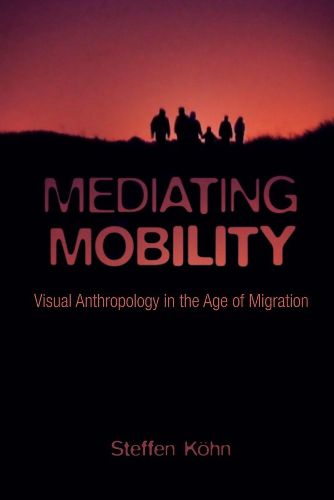Readings Newsletter
Become a Readings Member to make your shopping experience even easier.
Sign in or sign up for free!
You’re not far away from qualifying for FREE standard shipping within Australia
You’ve qualified for FREE standard shipping within Australia
The cart is loading…






Images have become an integral part of the political regulation of migration: they help produce categories of legality versus illegality, foster stereotypes, and mobilize political convictions. Yet how are we to understand the relationship between these images and the political in the discourse surrounding migration? How can we, as anthropologists, migration scholars, or documentary filmmakers visually represent people who are excluded from political representation? And how can such visual representations gain political momentum?
This volume not only considers the images that circulate with reference to migrants or draw attention to those that accompany, show, or conceal them. The book explores the phenomena of migration with the help of images. It offers an in-depth analysis of the documentary approaches of Ursula Biemann, Renzo Martens, Bouchra Khalili, Silvain George, Raphael Cuomo and Maria Iorio, Alex Rivera, and Rania Stepha, which evoke the particularities of migrant lifeworlds and examine urgent questions regarding the interrelations between politics and poetics, mobility and mediation, and the ethics of probability and possibility. The author also discusses his own cinematic practice in the making of Tell Me When (2011), A Tale of Two Islands (2012), and Intimate Distance (2015), a trilogy of films that explore the potential to communicate the bodily, spatial, and temporal dimensions of the experience of migration.
$9.00 standard shipping within Australia
FREE standard shipping within Australia for orders over $100.00
Express & International shipping calculated at checkout
Images have become an integral part of the political regulation of migration: they help produce categories of legality versus illegality, foster stereotypes, and mobilize political convictions. Yet how are we to understand the relationship between these images and the political in the discourse surrounding migration? How can we, as anthropologists, migration scholars, or documentary filmmakers visually represent people who are excluded from political representation? And how can such visual representations gain political momentum?
This volume not only considers the images that circulate with reference to migrants or draw attention to those that accompany, show, or conceal them. The book explores the phenomena of migration with the help of images. It offers an in-depth analysis of the documentary approaches of Ursula Biemann, Renzo Martens, Bouchra Khalili, Silvain George, Raphael Cuomo and Maria Iorio, Alex Rivera, and Rania Stepha, which evoke the particularities of migrant lifeworlds and examine urgent questions regarding the interrelations between politics and poetics, mobility and mediation, and the ethics of probability and possibility. The author also discusses his own cinematic practice in the making of Tell Me When (2011), A Tale of Two Islands (2012), and Intimate Distance (2015), a trilogy of films that explore the potential to communicate the bodily, spatial, and temporal dimensions of the experience of migration.